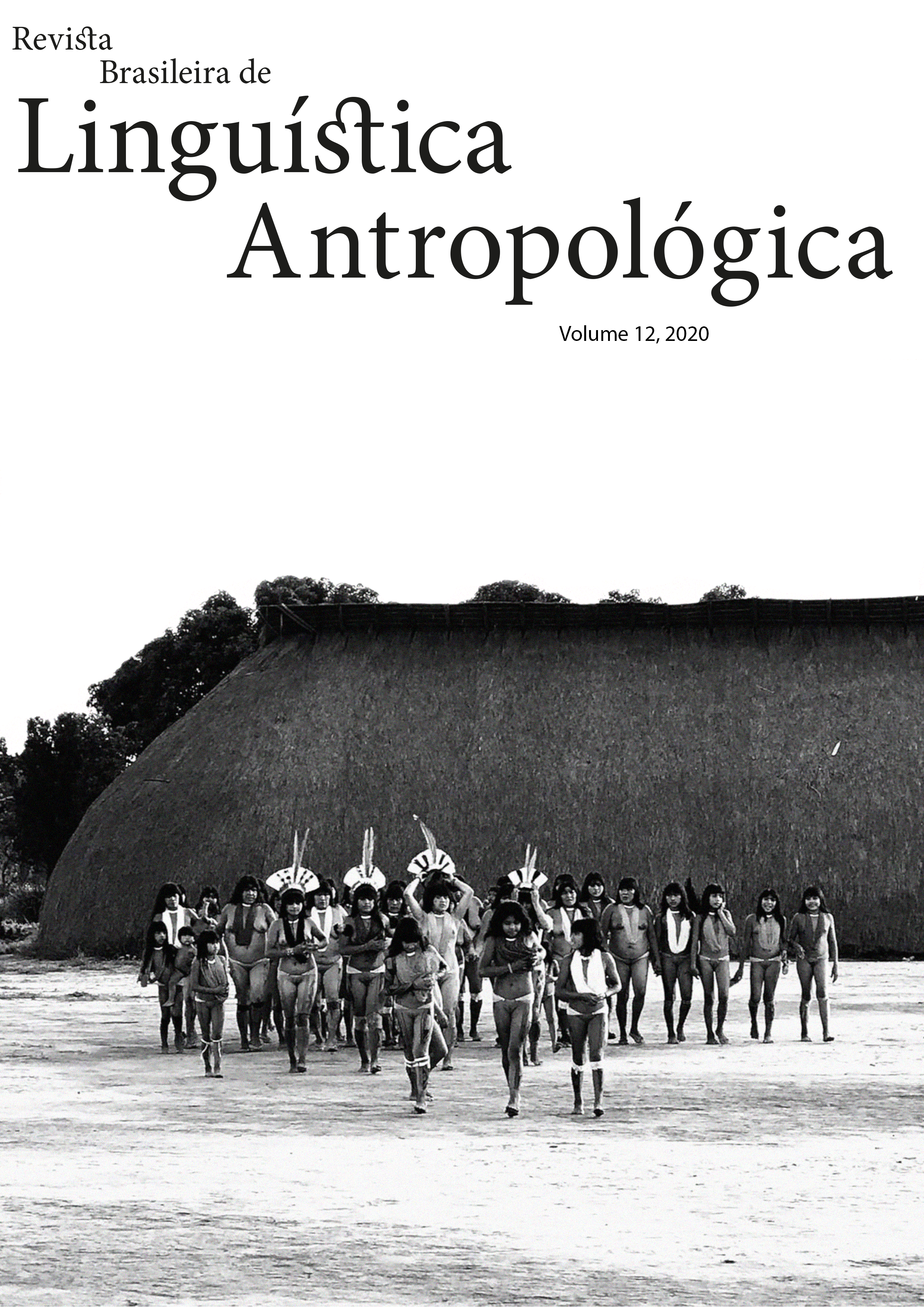A história do contado pelos Akuntsú: ocupação territorial e perdas populacionais
DOI:
https://doi.org/10.26512/rbla.v12i1.29633Keywords:
Território, História, Etnolinguística, AkuntsúAbstract
This article describes the history of territorial occupation and the population losses reported by the monolingual Akuntsú. A people that suffered numerous persecutions and witnessed the death of their relatives which occurred with the arrival of national expansion fronts in the state of Rondônia. Today they are protected by Funai who made the first contact with them in 1995, when they were able to continue their cultural processes and daily activities. Thus, in this article, we bring different stories told by the older members of the group: Konibú, who already passed away, and his wife Pugapia. Today, the group is reduced to only three people, who are living memories of a history of massacre, persecution, and escape that took place in the state of Rondônia in the 1980s and 1990s.
Downloads
References
ARAGON, Carolina. 2010/2011. Relatório Linguístico. Fundação Nacional do Índio, Brasília. Ms.
BECKER-DONNER, Etta. 1955. Notizen über einige Stämme an den rechten Zuflüssen des Rio Guaporé. Archiv für Völkerkunde, v. 10, p. 275-343.
FONSECA, Dante Ribeiro da; TEIXEIRA, Marcos Antonio Domingues. 2003. História Regional (Rondônia). Porto Velho, Rondônia.
MALDI, Denise. 1991. O complexo cultural do Marico: sociedades indígenas dos rios Branco, Colorado e Mequens, afluentes do Médio Guaporé. Boletim do MPEG, Antropologia, Belém, 7 (2): 209-69.
______. 1984. Populações indígenas e a ocupação histórica de Rondônia. Cuiabá,
Universidade Federal de Mato Grosso.
SANTOS, Marcelo.1986. Relatório técnico. Fundação Nacional do Índio, Brasília. Ms.
_______ e Altair Algayer. 1995. Índios isolados do vale do Corumbiara. Relatório Técnico. Fundação Nacional do Índio, Brasília. Ms.
VALADÃO, Virgínia. 1995. Relatório Antropológico 2. Fundação Nacional do Índio. Ms.
Downloads
Published
How to Cite
Issue
Section
License
Copyright (c) 2020 Revista Brasileira de Linguística Antropológica

This work is licensed under a Creative Commons Attribution 4.0 International License.
Authors who publish in RBLA agree to the following terms:
a) Authors maintain the copyright and grant the journal the right of first publication, and the work is simultaneously licensed under the Creative Commons Attribution License, which allows the sharing of the work with recognition of the authorship of the work and initial publication in this journal.
b) Authors are authorized to assume additional contracts separately, for non-exclusive distribution of the version of the work published in this journal (eg, publish in an institutional repository or as a book chapter), with recognition of authorship and initial publication in this journal.
c) Authors are allowed and encouraged to publish their work online (eg, in institutional repositories or on their personal page) at any point before or during the editorial process, as this can generate productive changes, as well as increase impact and citation of the published work.







